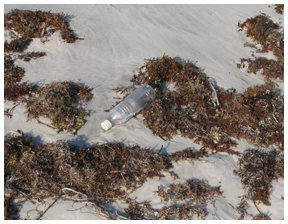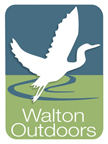
Head to local beach access from 8 a.m. – 1 p.m. and help clean up trash
Please come out Saturday and Sunday, June 4 and 5, 2010 to clean the beaches before any evidence of oil arrives. If oil hits the shore, debris that comes into contact with oil will be considered hazardous waste and will need to be disposed of as such. By cleaning the beaches now, we can eliminate some of this debris.
Very Important: This is not an oil clean-up effort! This is to clean the beach of human trash like soda bottles, caps, plastic cups, etc. before oil arrives. Do not pick up any debris that has been oiled! Please see the safety guidelines below. SWCC is providing bags and gloves for anyone who needs them. They are available at the Seaside Farmer’s Market tomorrow from 8:00-1:00. See Chandra at the seed and sprout booth.
We need to cover all 26 miles of Walton County. Please organize a clean-up effort at your nearest beach access.
Guidelines
Listed below are generally suggested guidelines for pre-oil impact beach cleanups:
• Use approved access points. (TDC Beach accesses)
• Stay below the tidal line. (Stay away from dunes)
• Pick up only man-made debris. Do not disturb natural vegetation or natural debris such as June grass, as it often provides valuable nesting benefits to shorebirds and other wildlife.
• Do not place debris in the dunes or above the high water line.
• Do not use equipment such as rakes, shovels or tractors.
• Either carry your collected bags of trash off the beach and dispose of them or place them at a TDC garbage collection point on the beach. Recyclables can be disposed of at designated recycling trailers located throughout South Walton.
• Do NOT pick up any oiled items or tar balls or oil patties. If you see any oiled items or oil, call (1-877-272-8335) or by dialing #DEP from most cell phones. Oiled items must be disposed of separately from non-oiled trash.
• If oiled or otherwise impaired wildlife is spotted, report it to 1-866-557-1401.
Note: It is shorebird and seabird nesting season. According to Florida Fish & Wildlife Conservation, beach clean-up efforts, although well-intentioned, can pose a serious threat to nesting shorebirds and seabirds if extreme caution is not exercised. There is some information about nesting birds further down.
It is also sea turtle nesting season. Please stay clear of marked turtle nests. Properly dispose of collected debris. Place bags at TDC garbage pickup areas.
Keep a lookout for wildlife. It is nesting season. There are several marked off areas on the beach where listed species nest. Their survival depends on us! The Florida Fish & Wildlife Commission asks that you do the following to avoid disturbing nesting birds during the cleanup activities:
Keep dogs leashed. An unleashed dog can destroy a colony of beach-nesting birds in minutes. Keep dogs away from all bird colonies and beach-nesting birds.
Spread the word. Many people do not realize their actions may be harmful to wildlife.
If you see people intentionally disturbing a bird colony, let them know how their actions may threaten survival of birds.
Protecting the young Adult beach-nesting birds are protective of their eggs and young. When you disturb a nesting area, worried adult birds see you as a danger and try to keep you away from their eggs and chicks. Sometimes an adult bird will pretend to have a broken wing to lure you and dangerous predators away from their young. Adult birds also may attempt to drive you away by calling out in protest, dive-bombing and even defecating on you If any of these things happen, you are too close to the birds! Please calmly and quietly leave the area. As you walk away, keep your eyes on the beach and watch carefully so you do not step on eggs or chicks.
Disturbance can threaten survival
Frequent disturbances of birds on the beach, especially disturbances that cause birds to take flight, may threaten their survival. Many species of Florida’s water birds, including gulls, terns, skimmers, plovers, willets
and oystercatchers, nest on the beach. When these beach-nesting birds are disturbed and flushed off
their nests by people or dogs, eggs and chicks in the nests are exposed to temperature extremes and predators like crows, raccoons and dogs. Several beach-nesting bird species are declining because of habitat loss and disruption of nesting activities. Beaches and islands that were once isolated are now teeming with boats, beach
goers and their pets. It is easy for unknowing beach goers to crush the eggs or kill young chicks
accidentally. Eggs and chicks of beach-nesting birds blend in with their surroundings and are nearly invisible on the ground.
What can you do to help?
Keep your distance. If birds appear agitated or take flight, you are too close! Some birds (such as terns and skimmers) require a 600-foot comfort zone during the breeding season, while other species are more tolerant of
disturbances. A general rule is to stay at least 300 feet (the length of a football field) away from groups of shorebirds.
Keep out of posted areas. During the spring and summer nesting season, signs may be posted in areas that are important for beach nesting birds. Avoid posted areas and encourage others to do the same.
Never intentionally force birds to fly. If you see birds on a beach, island or sandbar, walk or steer around the birds to avoid disturbing them.
